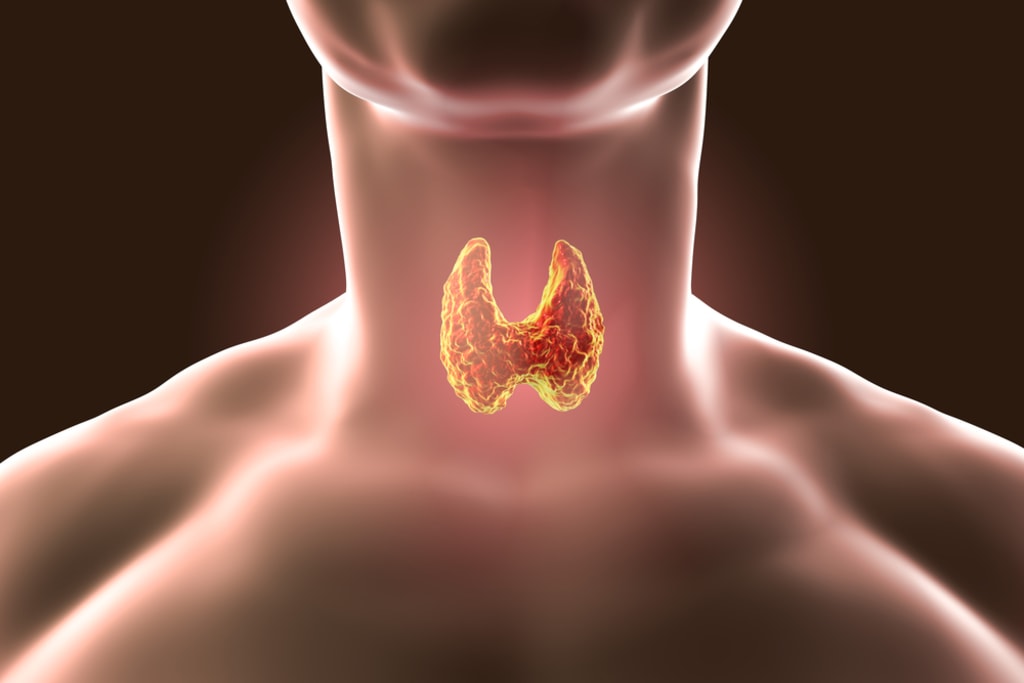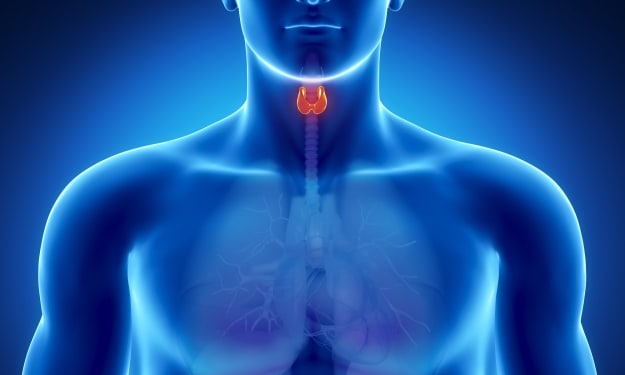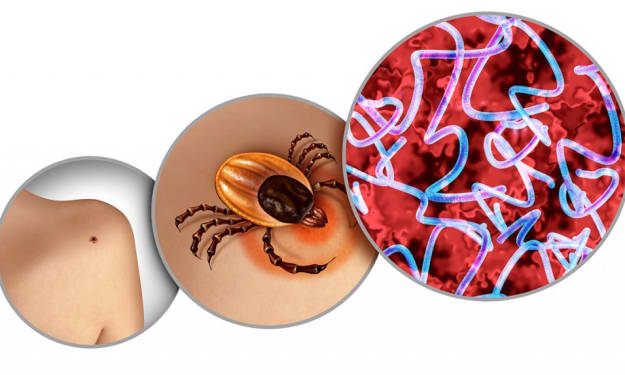
Hypothyroidism is a disease caused by a decrease in the function of the thyroid gland and insufficient production of hormones by it. It is manifested by the slowing down of all processes occurring in the body: weakness, drowsiness, weight gain, slowness of thinking and speech, chilliness, hypotension, in women - menstrual cycle disorders. In severe forms, myxedema develops in adults and cretinism (dementia) in children. Complications of the disease are hypothyroid coma, heart and vascular damage: bradycardia, atherosclerosis of coronary vessels, coronary artery disease. Treatment of patients with hypothyroidism is carried out with artificially synthesized thyroid hormones.
General information
Hypothyroidism is the most common form of functional disorders of the thyroid gland, which develops due to a long-term persistent deficiency of thyroid hormones or a decrease in their biological effect at the cellular level. Hypothyroidism may not be detected for a long time. This is due to the gradual, imperceptible beginning of the process, satisfactory well-being of patients in mild and moderate degrees of the disease, erased symptoms, regarded as fatigue, depression, pregnancy. The prevalence of hypothyroidism is about 1%, among women of reproductive age - 2%, in old age it increases to 10%.
The lack of thyroid hormones causes systemic changes in the work of the body. Thyroid hormones regulate energy metabolism in organ cells, and their deficiency manifests itself in a decrease in oxygen consumption by tissues, a decrease in energy consumption and processing of energy substrates. With hypothyroidism, the synthesis of various energy-dependent cellular enzymes necessary for the normal functioning of the cell is disrupted. In the case of advanced hypothyroidism, mucinous (mucous) edema occurs - myxedema, most pronounced in the connective tissue. Myxedema develops as a result of excessive accumulation of glycosaminoglycans in tissues, which, having increased hydrophilicity, retain water.
Classification and causes of hypothyroidism
Hypothyroidism can be acquired and congenital (it is diagnosed immediately after birth and can have any genesis). The most common is acquired hypothyroidism (more than 99% of cases). The main causes of acquired hypothyroidism are:
- chronic autoimmune thyroiditis (direct damage to the thyroid parenchyma by the own immune system). Leads to hypothyroidism years and decades after its occurrence.
- iatrogenic hypothyroidism (with partial or complete removal of the thyroid gland or after treatment with radioactive iodine).
The above-mentioned causes most often cause persistent irreversible hypothyroidism.
- treatment of diffuse toxic goiter (taking thyrostatics);
- acute iodine deficiency in food and water. Mild to moderate iodine deficiency in adults does not lead to hypothyroidism. In pregnant women and newborns, mild to moderate iodine deficiency causes transient disorders of thyroid hormone synthesis. In the case of transient hypothyroidism, thyroid dysfunction may disappear during the natural course of the disease or after the disappearance of the factor that caused it.
Congenital hypothyroidism develops as a result of congenital structural disorders of the thyroid gland or hypothalamic - pituitary system, a defect in the synthesis of thyroid hormones and various exogenous effects in the prenatal period (the use of medications, the presence of maternal antibodies to the thyroid gland in autoimmune pathology). Maternal thyroid hormones, penetrating through the placenta, compensate for the control of intrauterine development of the fetus, which has a pathology of the thyroid gland. After birth, the level of maternal hormones in the newborn's blood drops. Thyroid hormone deficiency causes irreversible underdevelopment of the child's central nervous system (in particular, the cerebral cortex), which is manifested by mental retardation to varying degrees, up to cretinism, impaired development of the skeleton and other organs.
Depending on the level of disorders occurring , hypothyroidism is isolated:
- primary - occurs due to the pathology of the thyroid gland itself and is characterized by an increase in the level of TSH (thyroid-stimulating hormone);
- secondary - associated with pituitary lesion, T4 and TSH have low levels;
- tertiary - develops when the hypothalamus function is impaired.
Primary hypothyroidism develops as a result of inflammatory processes, aplasia or hypoplasia of the thyroid gland, hereditary defects in the biosynthesis of thyroid hormones, subtotal or total thyroidectomy, insufficient intake of iodine into the body. In some cases, the cause of primary hypothyroidism remains unclear – in this case, hypothyroidism is considered idiopathic.
Rarely observed secondary and tertiary hypothyroidism can be caused by various injuries of the hypothalamic-pituitary system, reducing control over the activity of the thyroid gland (tumor, surgery, radiation, trauma, hemorrhage). Peripheral (tissue, transport) hypothyroidism is independently isolated, caused by tissue resistance to thyroid hormones or a violation of their transport.
Symptoms of hypothyroidism
The clinical features of the manifestation of hypothyroidism are:
- absence of specific signs characteristic only of hypothyroidism;
- symptoms similar to the manifestations of other chronic somatic and mental diseases;
- there is no dependence between the level of thyroid hormone deficiency and the severity of clinical symptoms: manifestations may be absent in the clinical phase or be strongly pronounced already in the phase of subclinical hypothyroidism.
Clinical manifestations of hypothyroidism depend on its cause, the age of the patient, as well as the rate of increase in thyroid hormone deficiency. The symptoms of hypothyroidism as a whole are characterized by polysystemicity, although complaints and concerns from any one organ system prevail in each individual patient, which often prevents a correct diagnosis. Moderate hypothyroidism may not show any signs.
With persistent and prolonged hypothyroidism, the patient has a characteristic appearance - an edematous, puffy face, with a yellowish tinge, swelling of the eyelids, limbs associated with fluid retention in connective tissue. The burning sensation, tingling, muscle pain, stiffness and weakness in the hands are bothering. There is dryness of the skin, fragility and dullness of the hair, their thinning and increased loss. Patients with hypothyroidism are in a state of apathy, lethargy. The severe form of the disease is characterized by a slowdown in speech (as if "the tongue is slurred"). There are changes in the voice (to low, hoarse) and hearing loss due to swelling of the larynx, tongue and middle ear.
Patients have some weight gain, hypothermia, constant chilliness, which indicates a decrease in the level of metabolic processes. Disorders of the nervous system are manifested by deterioration of memory and attention, a decrease in intelligence, cognitive activity, and interest in life. There are complaints of weakness, fatigue, sleep disorders (drowsiness during the day, difficulty falling asleep in the evening, insomnia). The general condition is manifested by a depressed mood, melancholy, depression. Neuropsychiatric disorders in children older than 3 years and in adults are reversible and completely disappear with the appointment of substitution therapy. In congenital hypothyroidism, the absence of replacement therapy leads to irreversible consequences for the nervous system and the body as a whole.
There are changes in the cardiovascular system: bradycardia, mild diastolic hypertension and the formation of effusion in the pericardial cavity (pericarditis). There are frequent, then constant headaches, the level of cholesterol in the blood rises, anemia develops. On the part of the digestive system, there is a decrease in enzyme production, decreased appetite, constipation, nausea, flatulence, biliary dyskinesia, hepatomegaly may develop.
Women with hypothyroidism develop disorders of the reproductive system, which is associated with a failure of the menstrual cycle (amenorrhea, dysfunctional uterine bleeding), the development of mastopathy. A pronounced deficiency of thyroid hormones threatens infertility, less obvious hypothyroidism in some women does not prevent pregnancy, but threatens it with a high risk of spontaneous miscarriage or the birth of a child with neurological disorders. Both men and women have a decrease in sexual desire.
Clinical manifestations of congenital hypothyroidism often cannot help in its early diagnosis. Early symptoms include a swollen abdomen, umbilical hernia, muscle hypotension, a large tongue, an increase in the posterior fontanel and thyroid gland, a low voice. If treatment is not started in a timely manner, then difficulty swallowing, decreased appetite, small weight gain, flatulence, constipation, pallor and dry skin, hypothermia, muscle weakness develop at 3-4 months of life. At the age of 5-6 months, there is a delay in the psychomotor and physical development of the child, there is a growth imbalance: late closure of the fontanelles, a wide bridge of the nose, an increase in the distance between paired organs - hypertelorism (between the inner edges of the eye sockets, breast nipples).
Complications of hypothyroidism
A complication of congenital hypothyroidism is a violation of the central nervous system and the development of oligophrenia (mental retardation) in a child, and sometimes its extreme degree - cretinism. The child lags behind in growth, sexual development, is prone to frequent infectious diseases with a long chronic course. An independent chair is difficult or impossible for him. Hypothyroidism during pregnancy manifests itself in various abnormalities of fetal development (heart defects, pathology of the development of internal organs), the birth of a child with functional insufficiency of the thyroid gland.
The most severe but rare complication of hypothyroidism is hypothyroid (myxedematous) coma. It usually occurs in elderly patients with long-term, untreated hypothyroidism, severe concomitant diseases, having a low social status or in the absence of care. The development of hypothyroid coma is promoted by infectious diseases, injuries, hypothermia, taking drugs that inhibit the activity of the central nervous system. Manifestations of hypothyroid coma are: progressive inhibition of the central nervous system, confusion, low body temperature, shortness of breath, decreased heart rate and blood pressure, acute urinary retention, swelling of the face, hands and body, intestinal obstruction.
The accumulation of fluid in the pericardium and pleural cavity sharply disrupts cardiac activity and respiration. A significant increase in the level of cholesterol in the blood provokes the early development of coronary heart disease, myocardial infarction, atherosclerosis of cerebral vessels, ischemic stroke.
Men and women with hypothyroidism may suffer from infertility, they have impaired sexual function. With hypothyroidism, serious immune disorders occur, which are manifested by frequent infections, the progression of autoimmune processes in the body, the development of oncological diseases.
Diagnosis of hypothyroidism
To diagnose hypothyroidism, an endocrinologist establishes the fact of a decrease in thyroid function based on the examination of the patient, his complaints, and the results of laboratory tests:
- determination of the level of thyroxine - T4 and triiodothyronine - T3 (thyroid hormones) and the level of thyroid-stimulating hormone - TSH (pituitary hormone) in the blood. With hypothyroidism, there is a reduced content of thyroid hormones in the blood, the TSH content can be either increased or decreased;
- determination of the level of autoantibodies to the thyroid gland (AT-TG, AT-TPO).
- biochemical blood analysis (hypothyroidism increases the level of cholesterol and other lipids);
- Ultrasound of the thyroid gland (to determine its size and structure);
- thyroid scintigraphy or fine needle biopsy.
Diagnosis of congenital hypothyroidism is based on neonatal screening (determination of TSH levels on the 4th-5th day of a newborn's life).
Treatment of hypothyroidism
Thanks to the achievements of the pharmaceutical industry, which allow artificially synthesizing thyroid hormone, modern endocrinology has an effective way of treating hypothyroidism. Therapy is carried out by replacing the missing thyroid hormones in the body with their synthetic analogue - levothyroxine (L-thyroxine).
Manifest (clinical) hypothyroidism requires the appointment of replacement therapy regardless of the patient's age and concomitant pathology. The option of starting treatment, the initial dose of the drug and the rate of its increase are individually assigned. In case of latent (subclinical) hypothyroidism, the absolute indication for replacement therapy is its diagnosis in a pregnant woman or pregnancy planning in the near future.
In most cases, the normalization of the general condition of a patient with hypothyroidism begins in the first week of taking the drug. The complete disappearance of clinical symptoms usually occurs within a few months. In elderly people and weakened patients, the reaction to the drug develops more slowly. Patients with cardiovascular diseases need to carefully select the dose of the drug (excessive intake of L-thyroxine increases the risk of angina pectoris, atrial fibrillation).
In the case of hypothyroidism resulting from the removal of the thyroid gland or radiation therapy, the use of synthetic hormones throughout life is indicated. Lifelong treatment of hypothyroidism is also necessary against the background of autoimmune thyroiditis (Hashimoto's disease). During treatment, the patient should regularly visit a doctor to adjust the dose of the drug, monitor the level of TSH in the blood.
If hypothyroidism occurs against the background of other diseases, normalization of thyroid function most often occurs in the process of healing the underlying pathology. Symptoms of hypothyroidism caused by taking certain medications are eliminated after the withdrawal of these drugs. If the cause of hypothyroidism is a lack of iodine intake with food, the patient is prescribed iodine-containing drugs, eating iodized salt, seafood. Treatment of hypothyroid coma is carried out in intensive care and intensive care units with the appointment of intravenous injections of large doses of thyroid hormones and glucocorticosteroids, correction of hypoglycemia, hemodynamic and electrolyte disorders.
Prognosis and prevention of hypothyroidism
The prognosis for congenital hypothyroidism depends on the timeliness of the initiated replacement therapy. With early detection and timely replacement treatment of hypothyroidism in newborns (1-2 weeks of life), the development of the central nervous system practically does not suffer and corresponds to the norm. With late compensated congenital hypothyroidism, the pathology of the child's central nervous system (oligophrenia) develops, the formation of the skeleton and other internal organs is disrupted.
The quality of life of patients with hypothyroidism taking compensatory treatment usually does not decrease (there are no restrictions, except for the need for daily intake of L-thyroxine). Lethality in the development of hypothyroid (myxedematous) coma is about 80%.
Prevention of the development of hypothyroidism consists in proper nutrition with sufficient intake of iodine and is aimed at its early diagnosis and timely initiated replacement therapy.
About the Creator
Artur Kh.
Writer, doctor and businessman. I blog about self-development, personal growth, health and new ways of making money.






Comments
There are no comments for this story
Be the first to respond and start the conversation.